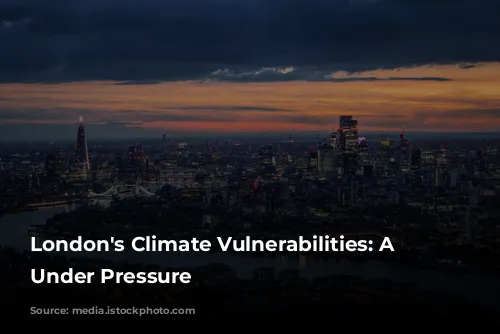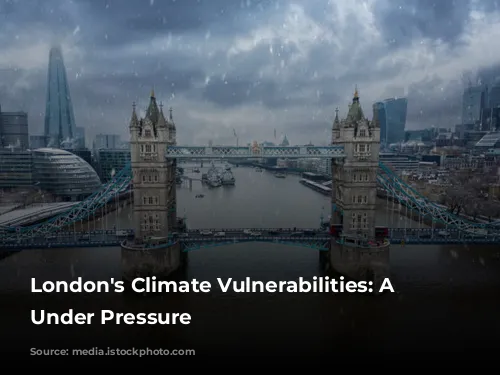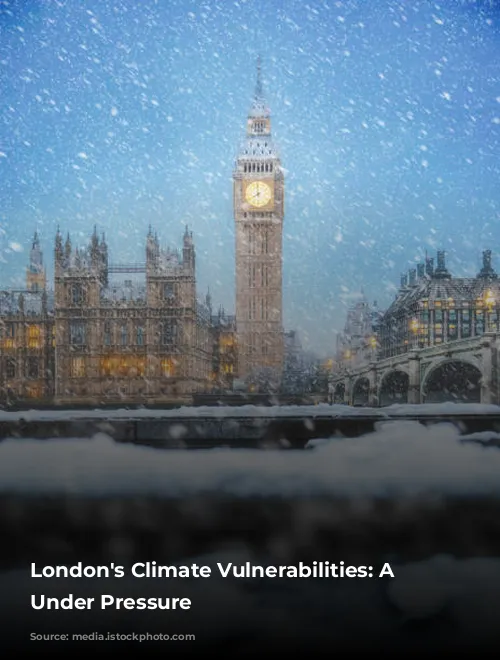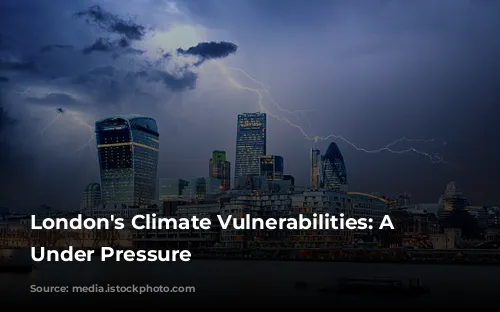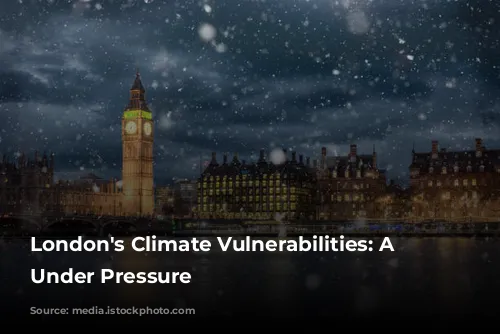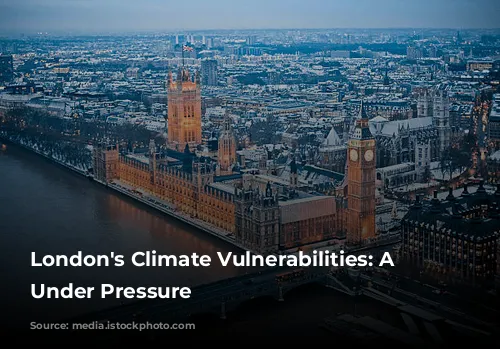London, a bustling metropolis, faces a growing number of climate-related challenges. Its urban fabric, while offering a sense of control over the environment, amplifies certain climate impacts, making the city more vulnerable to extreme weather events and temperature fluctuations.
Urbanization and Climate Impacts: A Double-Edged Sword
London’s dense urban environment, a key factor in its economic success, unfortunately exacerbates some climate impacts. The sheer number of buildings and paved surfaces traps heat during hot summer nights, leading to the urban heat island effect. This trapped heat, along with reduced evaporative cooling, contributes to a rise in nighttime temperatures compared to surrounding rural areas.
Moreover, London’s extensive network of roads and buildings prevents rainwater from naturally soaking into the ground. This results in increased runoff, leading to flash flooding and overburdening the city’s drainage systems.
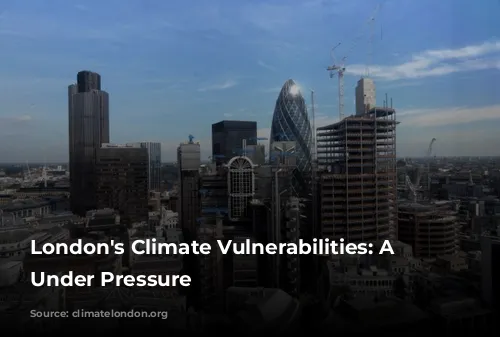
Flood Risk: A Persistent Threat
While London boasts robust defenses against tidal flooding, its vulnerability to other forms of flooding, particularly fluvial flooding and surface water flooding, remains a concern.
Fluvial flooding, caused by overflowing rivers, poses a significant risk, especially in areas located on the floodplains of the Thames. Surface water flooding, on the other hand, occurs when heavy rainfall overwhelms the drainage system.
Surface Water Flooding: A Growing Challenge
London’s rapid development, coupled with an increase in impermeable surfaces, exacerbates surface water flooding. This type of flooding is projected to worsen as intense rainfall events become more frequent, further straining the drainage system.
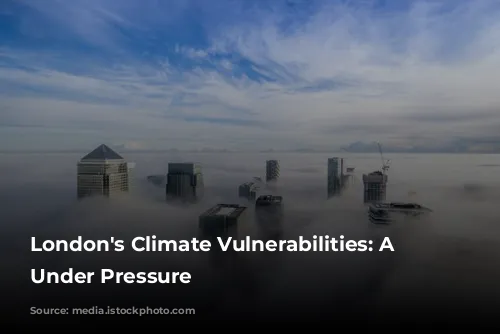
The Urban Heat Island Effect: A Growing Threat
London experiences a pronounced Urban Heat Island (UHI) effect, with temperatures at its core significantly higher than surrounding rural areas. This effect is amplified by the absorption of solar radiation by buildings and pavements, as well as reduced evaporative cooling due to the lack of green spaces and water bodies.
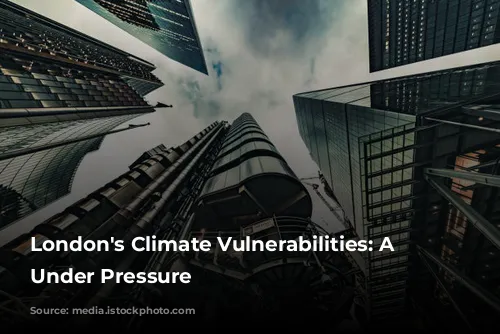
Overheating Buildings: A New Challenge
The UHI effect, combined with rising temperatures, increases the risk of overheating in buildings, particularly modern structures with high insulation and glazing. This trend is projected to intensify, leading to an increase in the number of days per year when overheating becomes a concern.
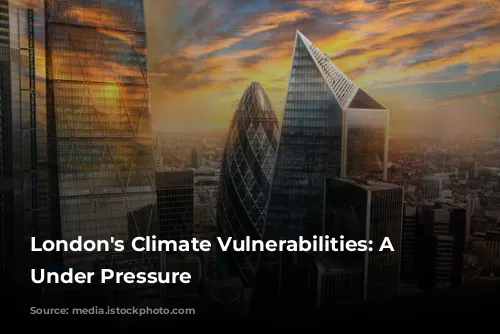
Adaptation Strategies: A Collaborative Effort
London’s Climate Change Adaptation Strategy seeks to mitigate these challenges by focusing on limiting the intensification of hot weather, designing and adapting buildings to minimize the need for cooling, and promoting energy-efficient cooling methods.
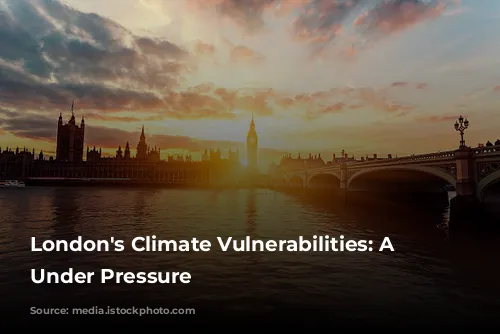
Subsidence: A Unique Threat
London’s underlying clay soils, with their high shrink-swell potential, make the city susceptible to subsidence, which can be exacerbated by changes in rainfall patterns and rising temperatures.
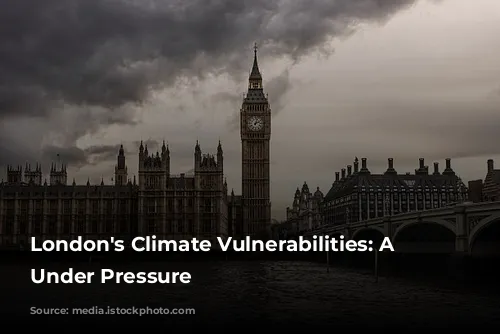
Conclusion: A City Navigating Climate Challenges
London faces a complex set of climate-related challenges, including flooding, overheating, and subsidence. The city’s urban fabric, while offering benefits, also contributes to some of these challenges. However, London is actively pursuing adaptation strategies to mitigate these risks and create a more resilient city.
